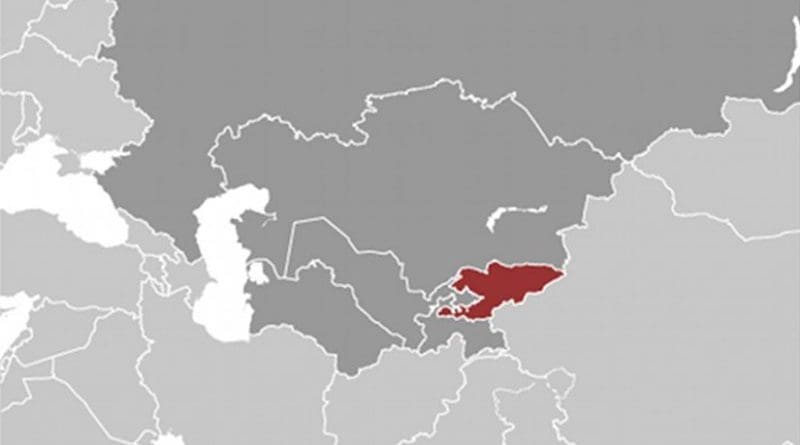Kyrgyzstan: Call For End To Campaign Against Critical Voices During EU Dialogue
By IPHR
The EU will hold its annual Human Rights Dialogue with Kyrgyzstan in Brussels on 6 September 2021. Ahead of this meeting, International Partnership for Human Rights (IPHR) and Legal Prosperity Foundation (LPF) submitted briefing material to the EU on key human rights issues that we would like the EU to raise with Kyrgyzstan’s government. In particular, we urged the EU raise concerns about serious threats to human rights, democratic governance and the rule of law seen in Kyrgyzstan since the October 2020 political crisis, as well as growing pressure on political and civic activists, journalists, lawyers and others critical of those in power documented in recent months.
Following the October 2020 crisis in Kyrgyzstan, which saw the rise to power of current President Sadyr Japarov, the authorities pushed through a new controversial constitution. This constitution grants the president excessively broad powers without an effective system of checks and balances, thereby paving the way for increasingly authoritarian rule.
President Japarov has also initiated a wide-ranging inventory of the country’s legal framework, which is currently being carried out in a rushed fashion, with observers warning that hundreds of laws are being hastily examined without sufficient time for comprehensive expert reviews and consultations. An extensive reform of the country’s criminal law has likewise been implemented in a hurried manner, leaving no time for thorough discussions or assessments of the human rights impact of this reform, which threaten to wipe out progress achieved in recent years.
The current caretaker parliament, whose legitimacy has been questioned since it has remained in office for months beyond its elected term, has passed several new laws imposing excessive restrictions on fundamental rights in non-transparent processes characterised by the lack of inclusive consultations. A new law, argued to be aimed at preventing disinformation, allows anyone claiming to have been defamed to demand the deletion of online content and the arbitrary blocking of web sites or pages allegedly publishing false information. Media watchdogs have raised the alarm that this law might be used to censor and silence online resources critical of those in power. Another new law introduces new unjustified, burdensome and discriminatory financial reporting obligations for NGOs. Civil society groups fear that it might be used to obstruct the activities of organisations who challenge public policies and seek accountability for corruption and human rights violations. The proponents of the law have sought to discredit and stigmatise NGOs by accusing them of threatening national security and undermining so-called traditional values – the promotion of which President Japarov has made a government priority.
President Japarov has insisted that there will be no politically motivated persecution under his rule. However, recent months have seen a growing number of cases of intimidation and harassment of civil society activists, journalists, lawyers and others who have criticised, opposed and protested against the new constitution and other policies of the current authorities. Outspoken individuals have been held under surveillance, summoned, questioned and detained by law enforcement authorities, with some of them being criminally prosecuted in apparent retaliation for their critical views. Most recently, it was revealed that law enforcement authorities wiretapped dozens of opposition politicians, civil society activists, lawyers and human rights defenders who have prominently criticised the new constitution and other initiatives of the current authorities. The fact that the wiretapping was carried out as part of an investigation into the post-election protests in October 2020 reinforced concerns about the impartiality and effectiveness of that investigation. While a number of people have been criminally charged in relation to the October 2020 events, vocal critics of Japarov appear to have been selectively targeted for prosecution, and no one has been held responsible for the alleged excessive use of police force against protesters or documented attacks on journalists perpetrated by police officers and private individuals in connection with the post-election protests.
Activists and journalists critical of the government have increasingly faced online threats, originating from both so-called social media trolls using fake accounts and from real government supporters. Those in power, including President Japarov have failed to unequivocally condemn online harassment, and no effective measures have been taken to investigate such incidents, resulting in a climate of impunity for the perpetrators.
Activists drawing attention to human rights violations perpetrated by law enforcement authorities also remain at the risk of persecution. Human rights defender Kamil Ruziev faced criminal charges in mid-2020 after seeking accountability for torture and other unlawful actions of security service officials. His case has been pending with court for more than a year in a process led by the same state body whose officials he faulted for wrongdoing. The authorities have to date failed to ensure an impartial and effective investigation into last year’s death in prison of human rights defender Azimjan Askarov and to grant compensation to his family for the rights violations he suffered, in accordance with the UN Human Rights Committee’s decision on his case. As the investigation into Askarov’s death now is set to re-open, after a local court approved a complaint against the earlier decision to close it, the authorities have an opportunity to correct past mistakes and ensure justice for the defender.
The issues summarised above are described in more detail in the IPHR-LPF briefing paper to the EU-Kyrgyzstan Human Rights Dialogue, which can be downloaded here.

